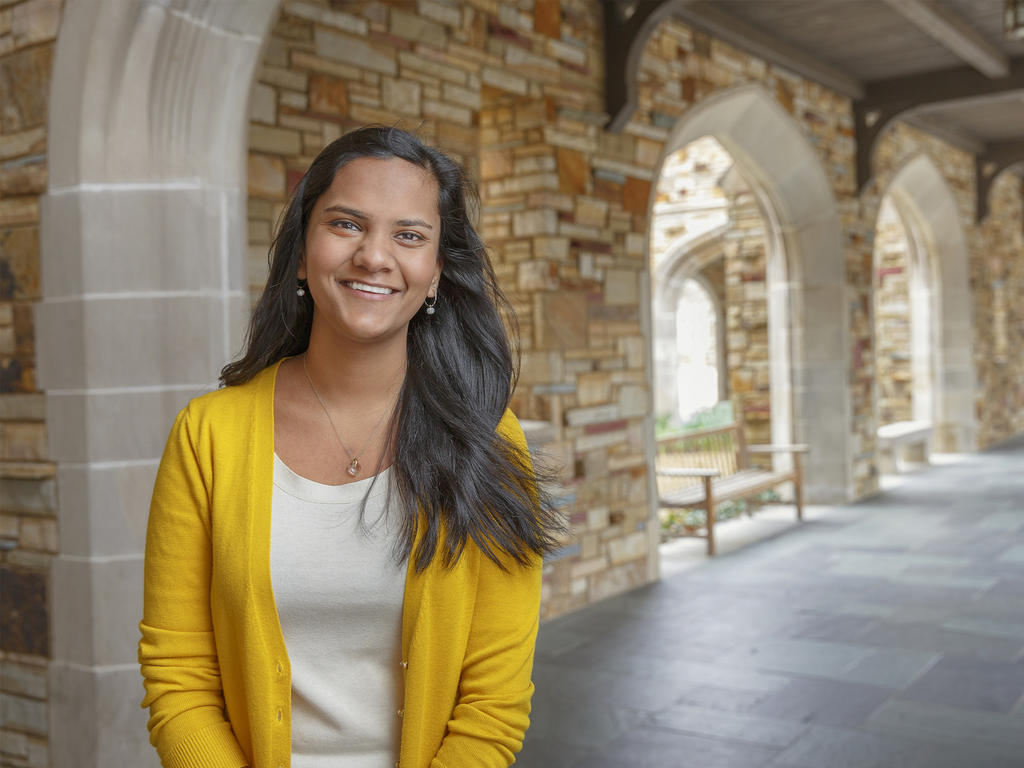Hometown: Memphis,TN
Major: Psychology
Research interests: Before coming to Rhodes, I was not sure what research I wanted to do, if any at all. However, after spending a summer and academic year on Dr. Marsha Walton’s research team, I have become increasingly interested in developmental psychology. Specifically, I am very interested to see how the stories children write reflect their ability to form and maintain relationships with their peers, as previous research done in developmental psychology has shown that a child’s ability to write coherent narratives indicates how children will interact with each other.
Extracurricular activities:
Along with my research for Dr. Walton, I am also involved on campus as a student leader as a Resident Assistant, and am a member of the South Asian Student Association group (SASA). Off campus, I work as a lab assistant as St. Jude Children’s Research Hospital and as a volunteer at the Church Health Center.
Tell the story of how you got to Rhodes College.
Being a native Memphian, I grew up listening to the success stories of Rhodes graduates and how Rhodes College was a hidden treasure in the South. Yet, like every other high school student making a college decision, I was afraid of being “stuck” in the same city, and it was not until my first campus visit that I realized the truly unique characteristics of Rhodes College. From the amazing architecture to the diverse faculty, Rhodes was definitely not what I expected. After seeing all the wonderful opportunities Rhodes would potentially give me, my choice had essentially been made for me.
How have you changed since beginning your studies at Rhodes College?
The rigorous curriculum at Rhodes has definitely made me a better student, by bettering my time management and study skills. Furthermore, because Rhodes offers an array of different classes and presents many extracurricular opportunities, it helped me focus on preparing for medical school, while still providing that liberal arts education and allowing me to partake in things, such as this research, which I hadn’t thought possible.
Tell us more about your research presentation at the SRCD Biennial meeting. Could you give us a brief synopsis of your work?
My presentation focuses on stories written by elementary school children about their conflicts with peers. We assessed the coherency of these narratives, and we counted the number of times children described the thoughts and emotions of themselves and others. We found, as expected, that children who are disliked by their peers are likely to be verbally or physically victimized. However, those disliked children who were able to tell coherent stories and stories that reported about the psychological experiences of self and others were significantly less likely to be victimized. Additional research, which our team will present in Chicago in June, shows that narrative skills predict better peer adjustment in the following school year.
How does your research contribute to your academic career?
This research has benefitted many of my goals here at Rhodes. I’ve been able to practice and improve statistical analysis skills, communication skills, and collaboration skills, as we work with researchers at Rollins College, the University of Memphis, and staff at the Church Health Center. Furthermore, being a member of this team has given me the chance to apply my knowledge of psychology and also work with a diverse group of young children. Being an aspiring pediatrician, I could not have asked for a better opportunity to work with children of different backgrounds, gaining understanding of how they interact with each other and adults.
